The World Where We Live: Ghana
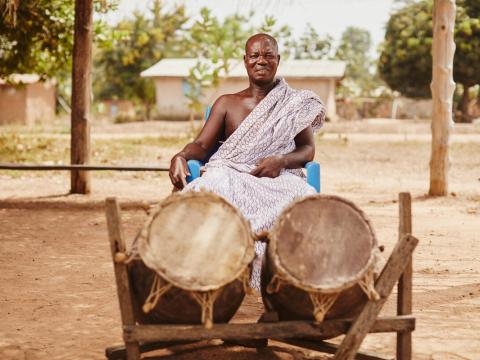
With a land boasting dense forests, rolling plains, sandy beaches and diverse wildlife, Ghana is rich in natural resources – it’s even Africa’s biggest producer of gold! Populated for more than 10,000 years, this country is home to more than 100 ethnic groups and languages. Hospitality is a big part of the local culture and it’s a point of pride to greet visitors with open arms and smiles – welcome to Ghana!
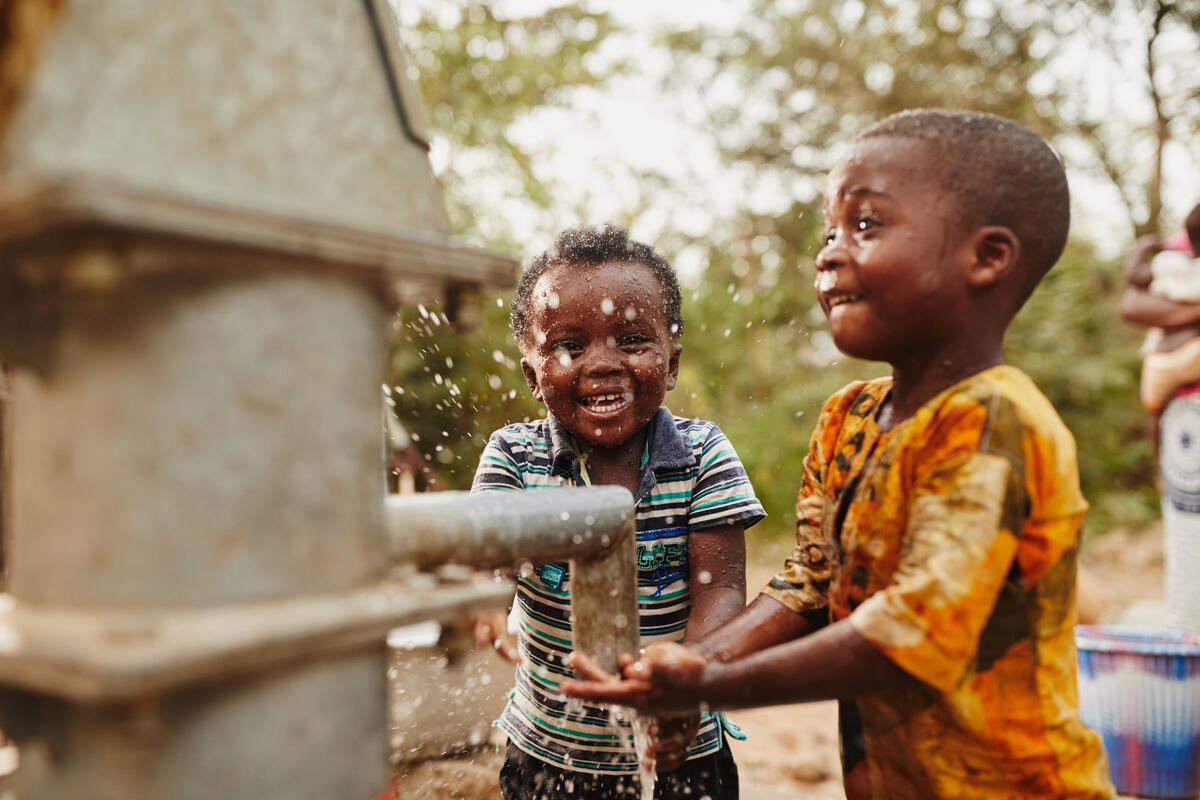 Water is life! Ghana’s tropical climate means it depends on the annual monsoon rains for water. In the north, the single rainy season lasts from May to September, while the south has two – a longer one from April to July and a shorter one from September to November. This means water can sometimes be in scarce supply. For many people, even in urban areas, water shortages, rationing and interrupted supplies are a frequent part of daily life.
Water is life! Ghana’s tropical climate means it depends on the annual monsoon rains for water. In the north, the single rainy season lasts from May to September, while the south has two – a longer one from April to July and a shorter one from September to November. This means water can sometimes be in scarce supply. For many people, even in urban areas, water shortages, rationing and interrupted supplies are a frequent part of daily life.
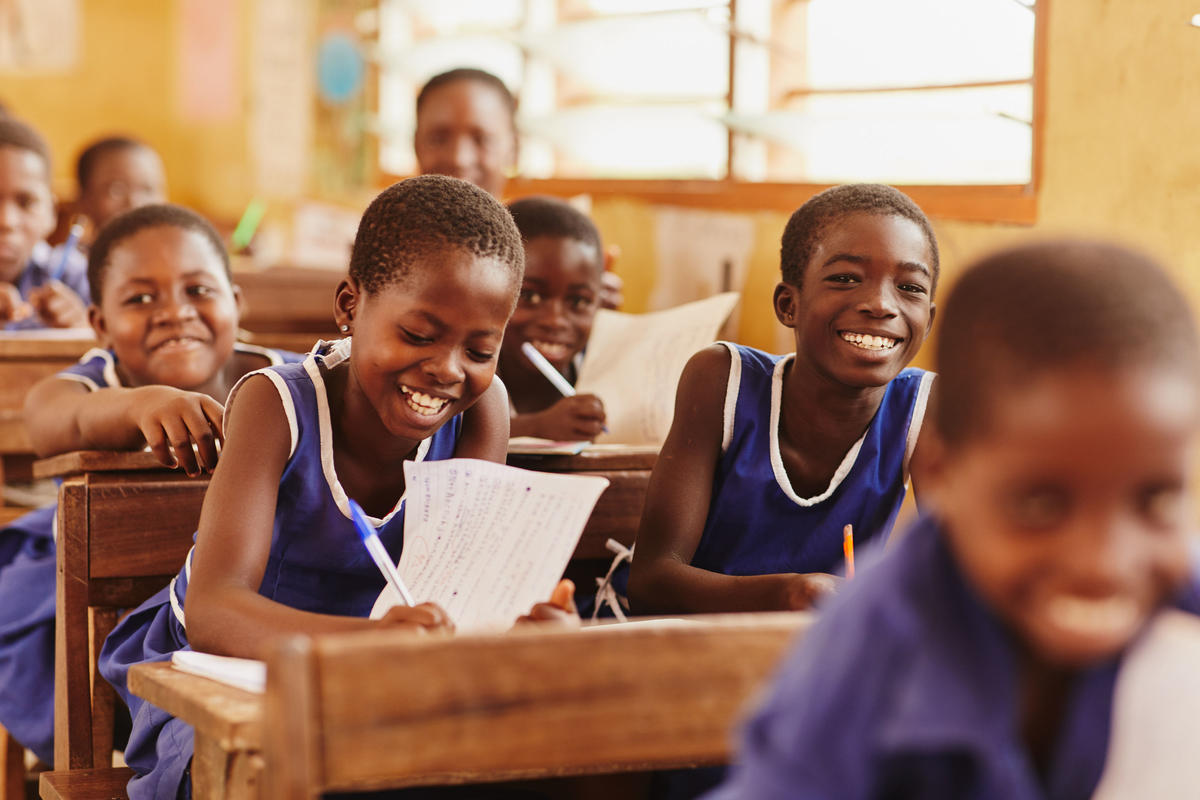 With 84 per cent of school-age children attending school, Ghana leads the pack for enrolments in sub-Saharan Africa. School is compulsory in Ghana for six years of primary school and the first three years of high school. Students can then choose to continue with the final four years of senior high school. Children may start their schooling in one of the 11 local languages spoken in Ghana, but from Year 4 onwards, all classes are taught in English. Students study Ghanaian and French languages as subjects until at least Year 9.
With 84 per cent of school-age children attending school, Ghana leads the pack for enrolments in sub-Saharan Africa. School is compulsory in Ghana for six years of primary school and the first three years of high school. Students can then choose to continue with the final four years of senior high school. Children may start their schooling in one of the 11 local languages spoken in Ghana, but from Year 4 onwards, all classes are taught in English. Students study Ghanaian and French languages as subjects until at least Year 9.
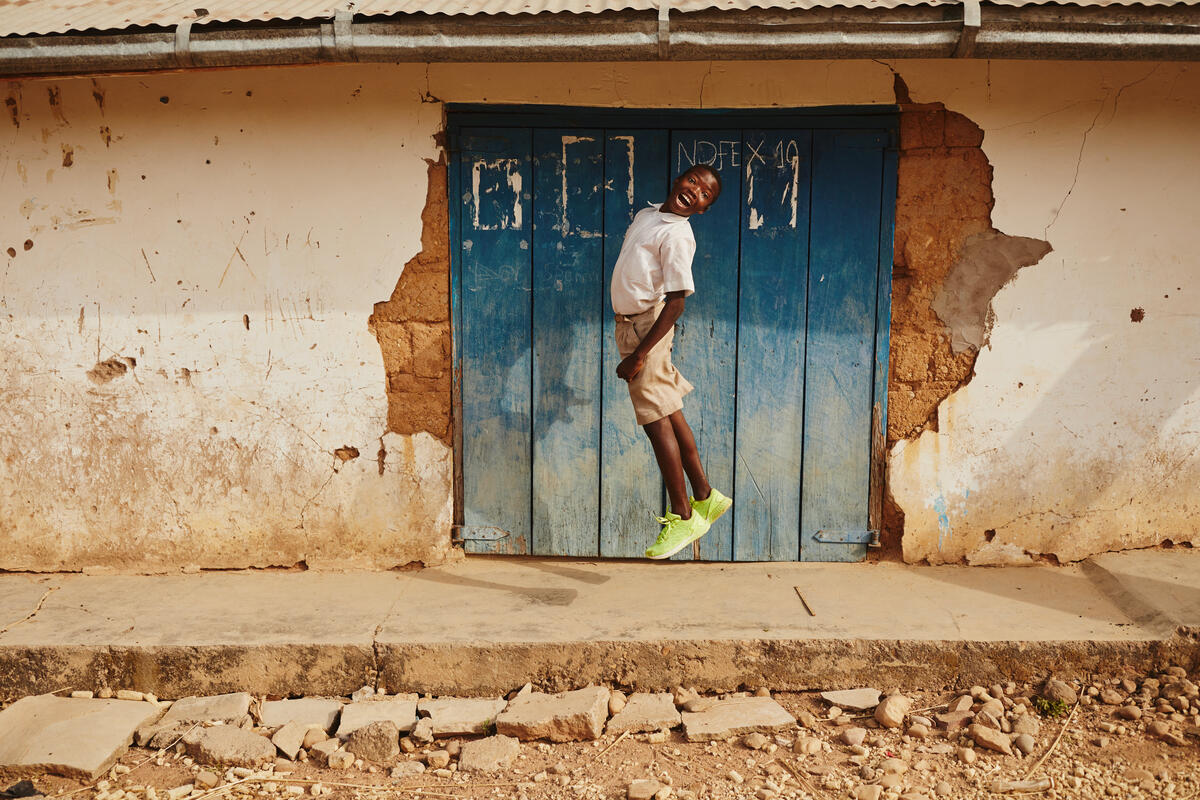
Nearly 14 million people in Ghana (about 54 percent) live in cities, and the urban population has tripled over the last three decades. As people have moved away from subsistence farming, life has improved for many in the cities, with people having better access to education and jobs. But this rapid urbanisation can come at the expense of infrastructure – water and sanitation services are better equipped in the centre of towns, whereas those arriving on the outskirts find they lack these basic services.
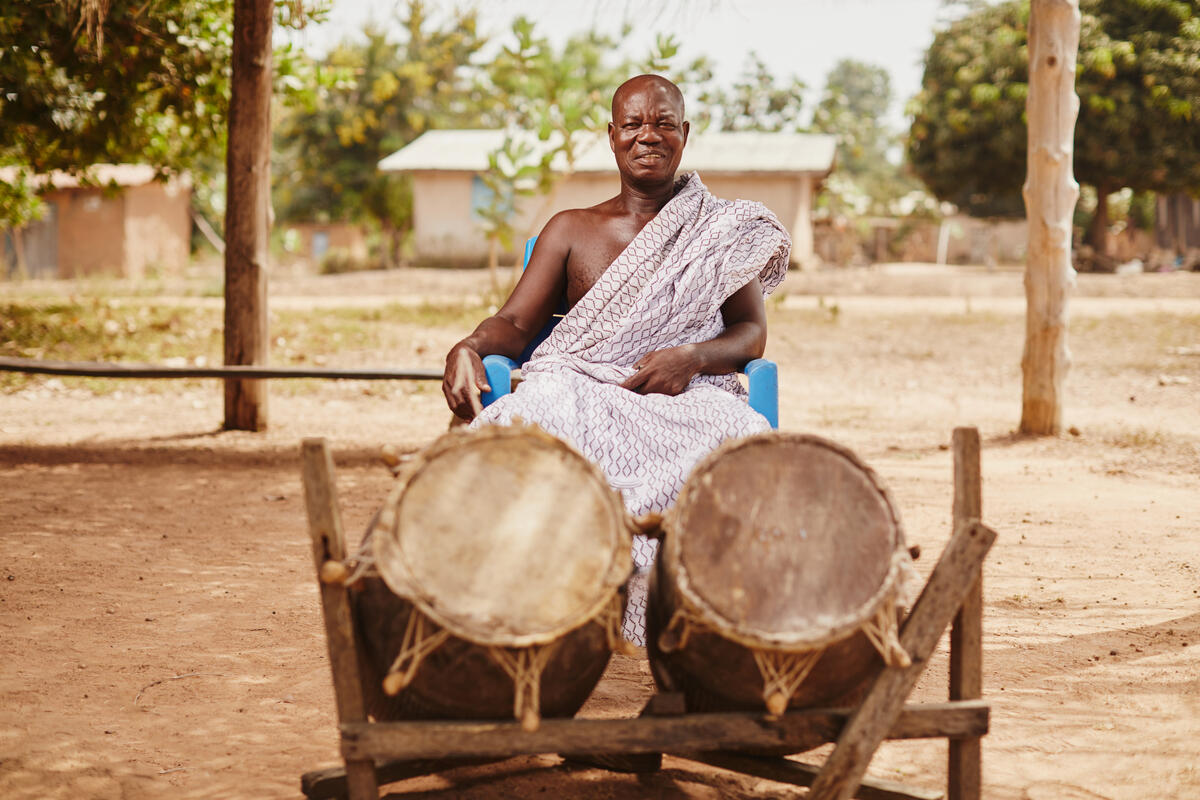 Respect for your elders is an important part of all social interactions in Ghana – anyone older than you is “Uncle”, “Auntie”, “Brother”, “Sister” or “Sir/Madam”, depending on their age relative to yours. And don’t forget to say “please” whenever you address them! This respect extends to hospitality – visitors are welcomed with open arms and plied with food, drink and attention. “Akwaaba!” (Welcome!)
Respect for your elders is an important part of all social interactions in Ghana – anyone older than you is “Uncle”, “Auntie”, “Brother”, “Sister” or “Sir/Madam”, depending on their age relative to yours. And don’t forget to say “please” whenever you address them! This respect extends to hospitality – visitors are welcomed with open arms and plied with food, drink and attention. “Akwaaba!” (Welcome!)
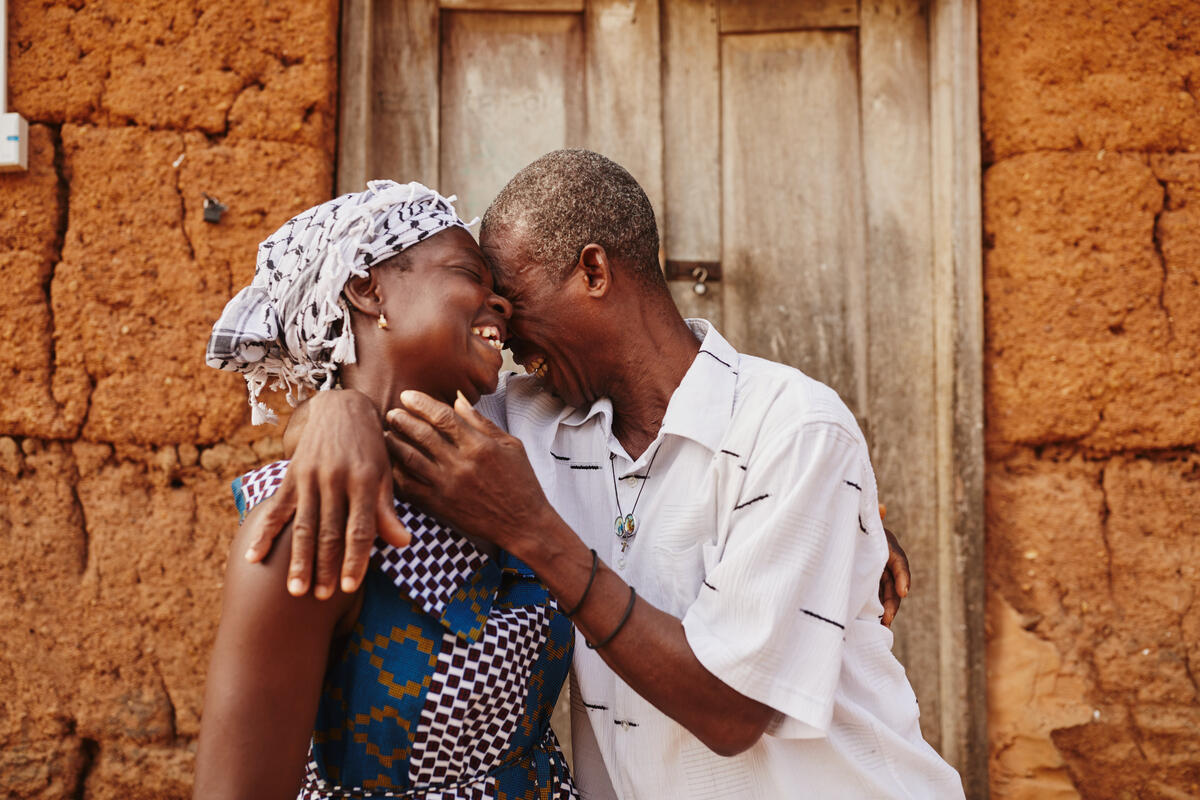 Married life starts early for many young women in Ghana – with almost 20 per cent of 18-year-old girls and five percent of 15-year-olds already married. Almost eight in 10 marriages are also unregistered, meaning the state doesn’t recognise them. This makes the true number of marriages difficult to know for sure. World Vision sponsors are working to strengthen child protection and help community leaders, parents and children learn about the damage that child marriage can do to health, safety, education and long-term income earning opportunities, especially for girls.
Married life starts early for many young women in Ghana – with almost 20 per cent of 18-year-old girls and five percent of 15-year-olds already married. Almost eight in 10 marriages are also unregistered, meaning the state doesn’t recognise them. This makes the true number of marriages difficult to know for sure. World Vision sponsors are working to strengthen child protection and help community leaders, parents and children learn about the damage that child marriage can do to health, safety, education and long-term income earning opportunities, especially for girls.
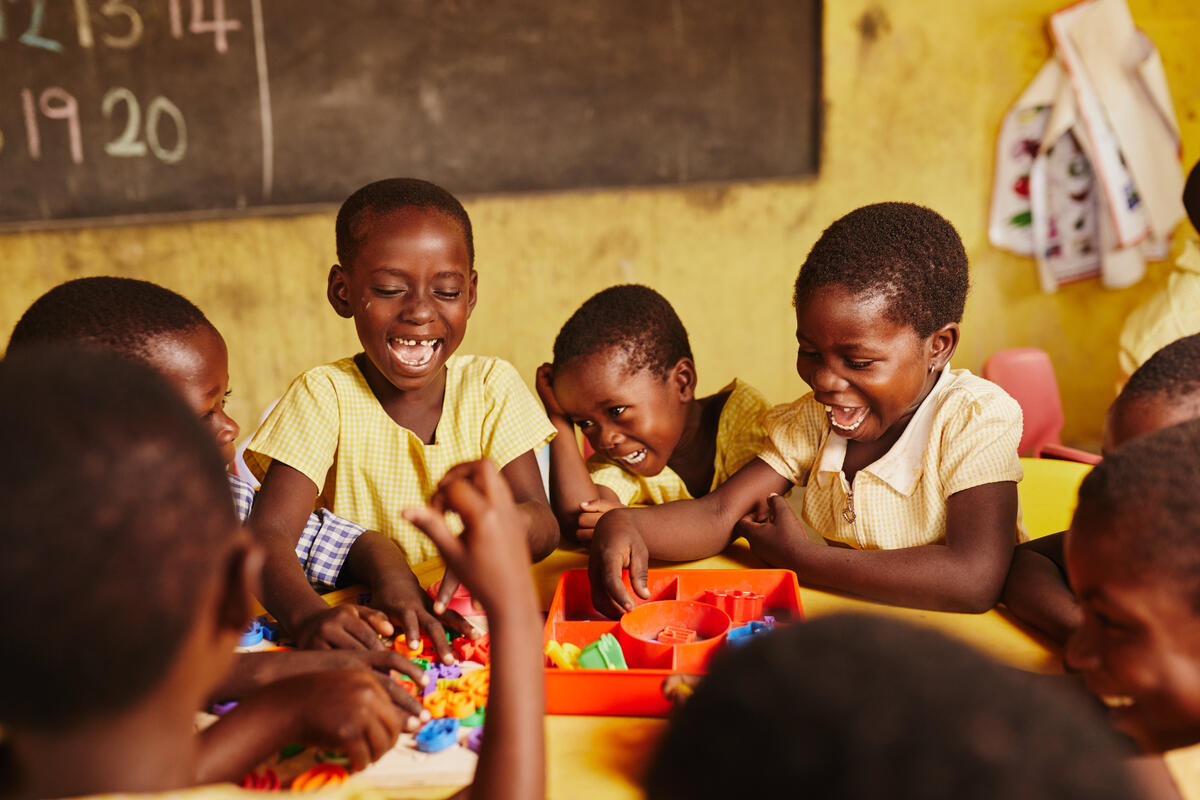 When you’re at preschool, playing is learning. Ghana was the first country in sub-Saharan Africa to implement two years of compulsory kindergarten for children aged 4 and 5. Here, children learn basic literacy, numeracy and social skills with a curriculum that focuses on play-based learning. But they don’t know they’re preparing themselves for primary school and lifelong learning, they’re just having fun.
When you’re at preschool, playing is learning. Ghana was the first country in sub-Saharan Africa to implement two years of compulsory kindergarten for children aged 4 and 5. Here, children learn basic literacy, numeracy and social skills with a curriculum that focuses on play-based learning. But they don’t know they’re preparing themselves for primary school and lifelong learning, they’re just having fun.
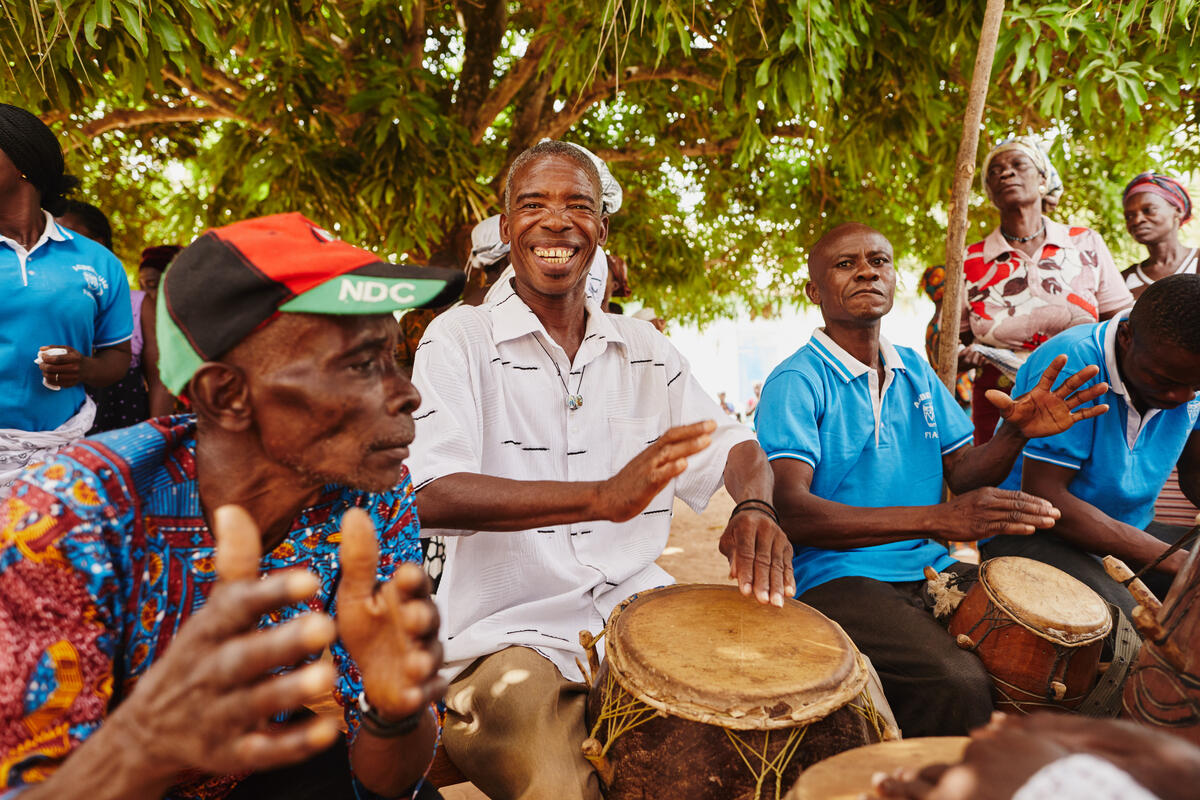 Unlike the frantic pace of Accra, the capital, Ghana’s villages take life at a slower pace. It’s up with the roosters to fetch water and make breakfast in the cool of the early morning – usually fufu, a doughy food made by mashing cooked yams or cassava root and moulding it into ball shapes. And at the end of each day, there is often drumming by the light of the fire. Music and dancing are important parts of everyday tribal life and form the backdrop to many rituals and ceremonies.
Unlike the frantic pace of Accra, the capital, Ghana’s villages take life at a slower pace. It’s up with the roosters to fetch water and make breakfast in the cool of the early morning – usually fufu, a doughy food made by mashing cooked yams or cassava root and moulding it into ball shapes. And at the end of each day, there is often drumming by the light of the fire. Music and dancing are important parts of everyday tribal life and form the backdrop to many rituals and ceremonies.
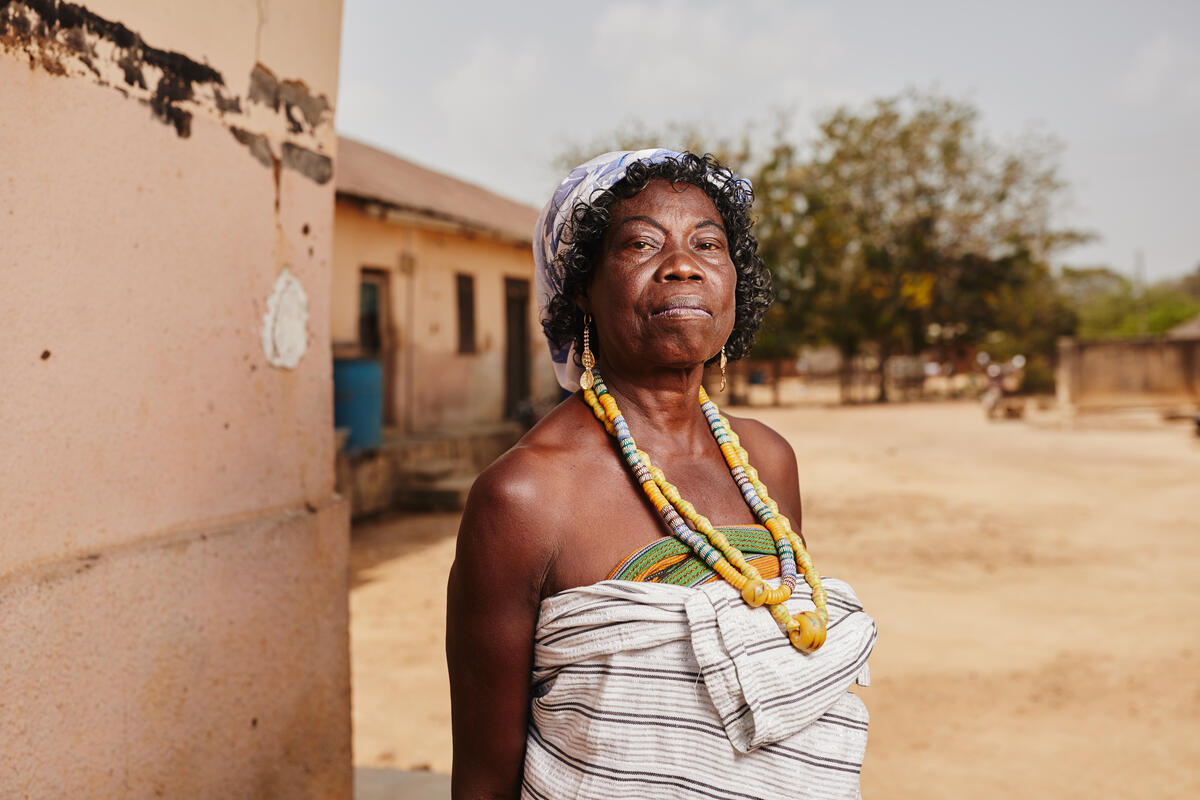 Kente cloth is a Ghanian textile made from brightly coloured cotton, which Akan royalty traditionally wore wrapped around the body like a toga. Thin strips of cotton are woven on long looms – each of the many designs has their own meaning, with hidden stories and symbols behind the patterns and colours. While traditional hand-loomed kente is usually reserved for special occasions like weddings, kente-style pieces are a popular (and more affordable) alternative – bringing this piece of Ghanian culture into the reach of many.
Kente cloth is a Ghanian textile made from brightly coloured cotton, which Akan royalty traditionally wore wrapped around the body like a toga. Thin strips of cotton are woven on long looms – each of the many designs has their own meaning, with hidden stories and symbols behind the patterns and colours. While traditional hand-loomed kente is usually reserved for special occasions like weddings, kente-style pieces are a popular (and more affordable) alternative – bringing this piece of Ghanian culture into the reach of many.
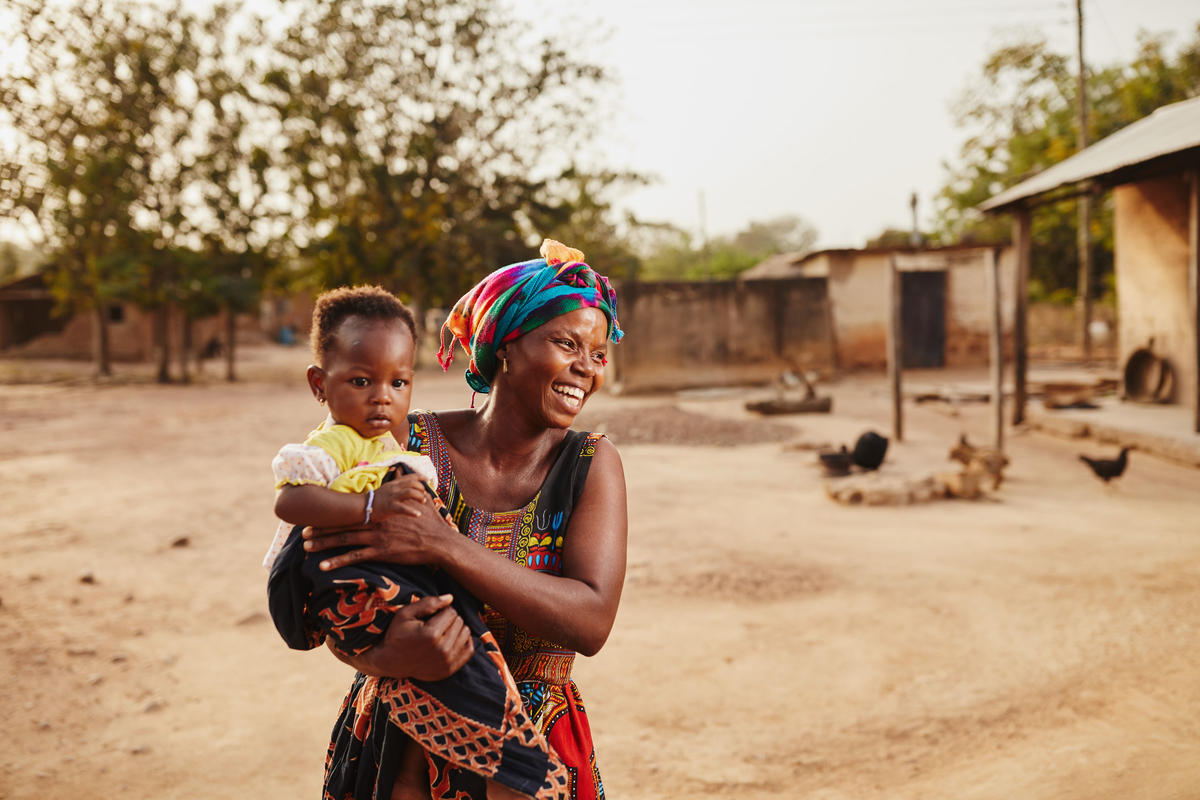 Life can sometimes have a tough start. Ghana has one of the world’s highest rates of maternal mortality, with many of these deaths being preventable with timely and quality healthcare. Only 43 percent of infants are breastfed exclusively for the first six months, which increases their risk of infections, malnutrition and death. One of the ways World Vision sponsors help mothers and babies is through immunisations and growth monitoring, which is helping more infants survive and thrive in their first two years.
Life can sometimes have a tough start. Ghana has one of the world’s highest rates of maternal mortality, with many of these deaths being preventable with timely and quality healthcare. Only 43 percent of infants are breastfed exclusively for the first six months, which increases their risk of infections, malnutrition and death. One of the ways World Vision sponsors help mothers and babies is through immunisations and growth monitoring, which is helping more infants survive and thrive in their first two years.
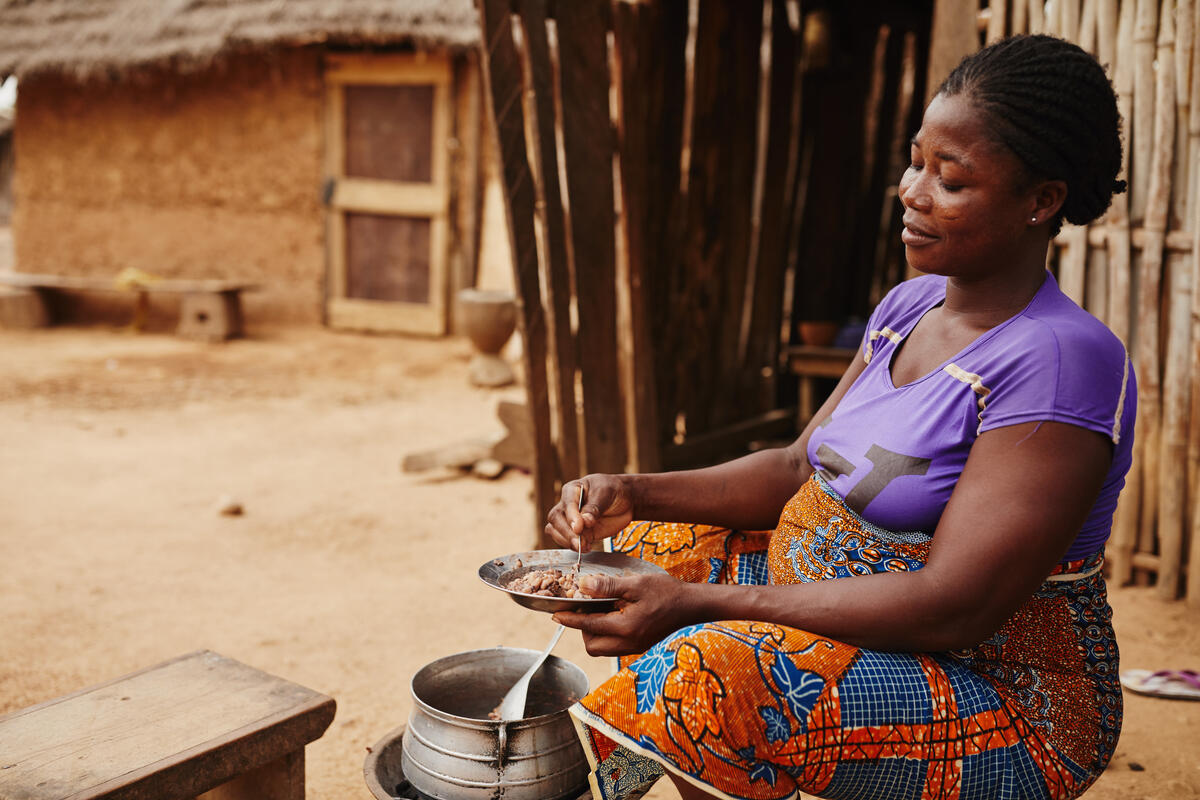 Cooking and eating are two things Ghanaians love to do! Cooking can be an all-day affair – many of the most popular dishes are soups and stews, which are often cooked over a small kerosene or charcoal brazier. Generally, people prepare and eat food they day they buy it from the market, because many homes are without refrigeration (or steady power supplies). Favourite dishes include jollof rice, a spicy tomato rice dish; waakye, rice and beans cooked with red sorghum leaves; and kelewele, sweet and spicy fried plantain cubes.
Cooking and eating are two things Ghanaians love to do! Cooking can be an all-day affair – many of the most popular dishes are soups and stews, which are often cooked over a small kerosene or charcoal brazier. Generally, people prepare and eat food they day they buy it from the market, because many homes are without refrigeration (or steady power supplies). Favourite dishes include jollof rice, a spicy tomato rice dish; waakye, rice and beans cooked with red sorghum leaves; and kelewele, sweet and spicy fried plantain cubes.
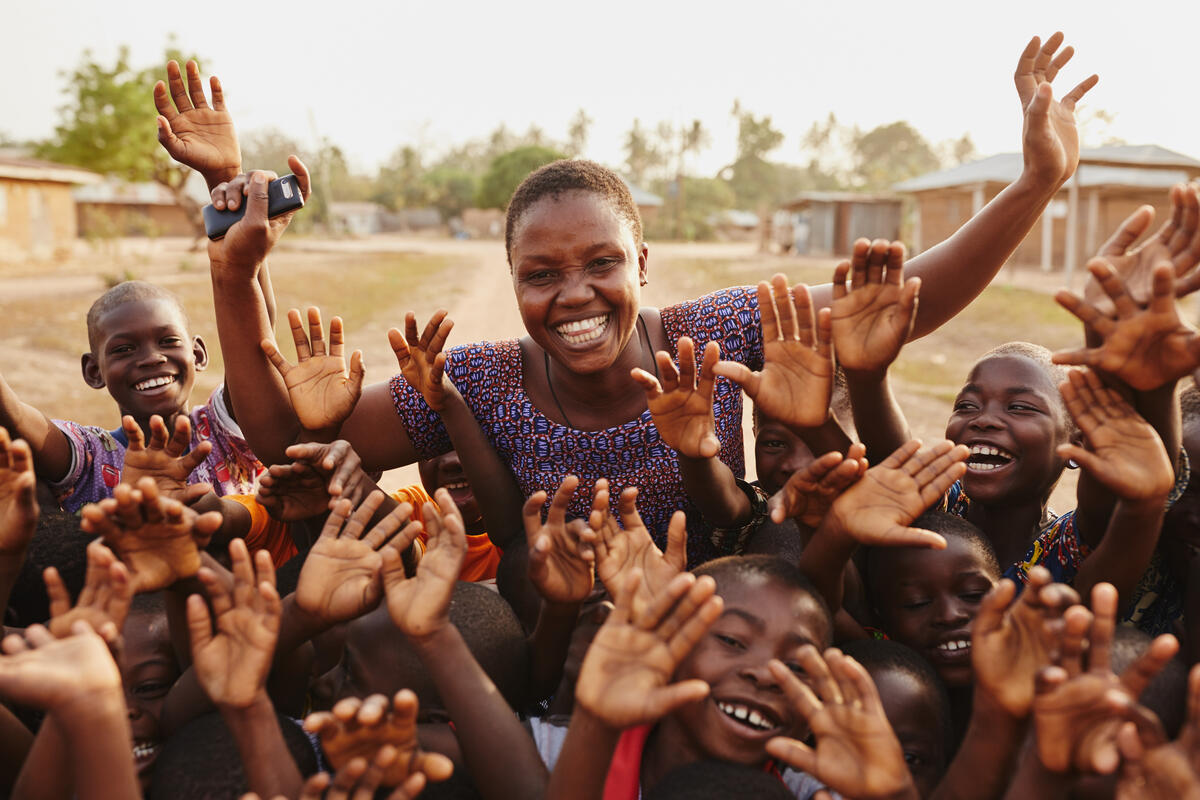
A proverb in Ghana says: “Knowledge is like a baobab tree; no one can encompass it with their hands.” Together, child sponsors have been joining hands with children and communities in Ghana since 1979, transforming the lives of children and their families. Child sponsors’ support means children can have education, clean water and good nutrition, and they are safer and more economically secure.
Child sponsorship – partnering with children and communities to break the cycle of poverty in over 1250 communities in this big, beautiful world.